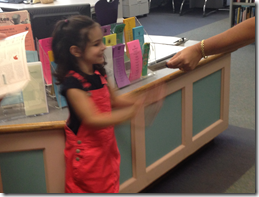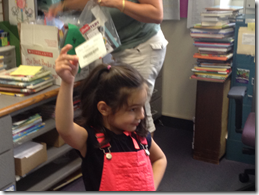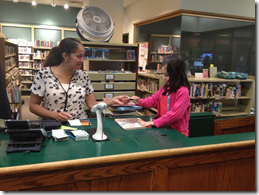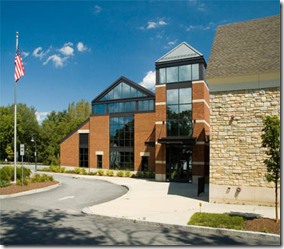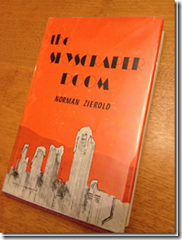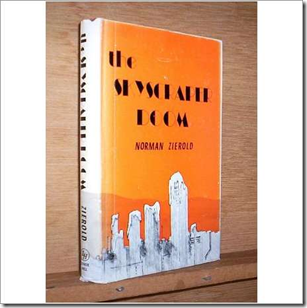My daughter received her first library card. Her father might be more excited about it than she is, and for good reason.
/My daughter received her first library card last weekend. She was thrilled.
I think my wife and I were even more excited than she was.
She also checked out her first book with it: If You Give a Moose a Muffin.
I didn’t receive my first library card until I was ten years-old. There were very few books in my home when I was growing up, so my library card represented access to a world never before seen by me. I loved my public library, despite it’s miniscule size (a single room of books) and placement in the basement of our town hall. I would walk the aisles, staring at the spines of the books, unable to fathom how many stories were now available to me.
Today my hometown library is a beautiful building located in what used to be my middle school. It’s enormous, illuminated by natural light, filled with more books than my childhood mind could have ever imagined, and equipped with all the amenities of a modern-day library.
I’ve had the pleasure of speaking there on a few occasions, and while I adore the space, I still hold a special place in my heart for that small, basement room in the town hall where so many doors opened for me for the first time.
After some sleuthing by a clever reader, I even managed to identify and locate the first library book that I ever checked out, and a copy sits on my bookshelf today.
I have yet to reread it, fearful that it won’t be as spellbinding as I remember it to be, but I’ll crack it open soon.
Today copies of all three of my novels can be found in the same library where my daughter received her first library card All three can also be found on the shelves of my hometown library.
This astounds me. My heart still flutters every time I see one of my novels on a bookstore shelf, but seeing them on the shelves of these two libraries means more to me than I can describe.
I have wanted to be an author for as long as I can remember, but in my wildest boyhood dreams, I never imagined that my books would someday find their way onto the shelves of the library where the world of books and reading first opened to me.
And as a parent, the idea that my books are sitting on the shelves of the same library where my daughter received her first library card is equally indescribable.
My daughter was decidedly less impressed, and she is never terribly excited about seeing her father’s books on library or bookstore shelves. That’s okay. My novels don’t have any pictures, and the endings aren’t always happy.
As long as she’s reading something, I don’t care.
